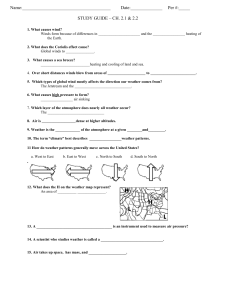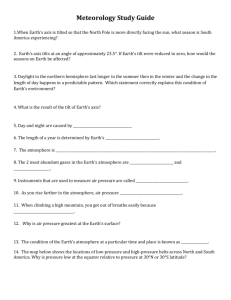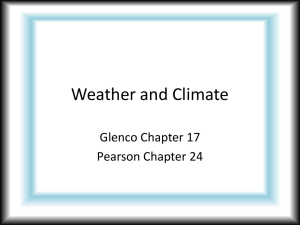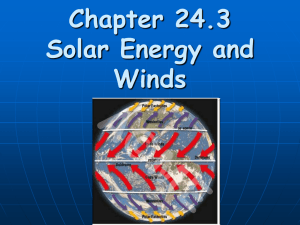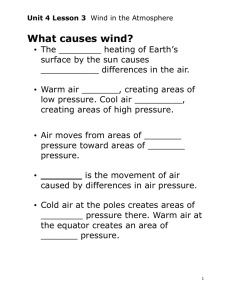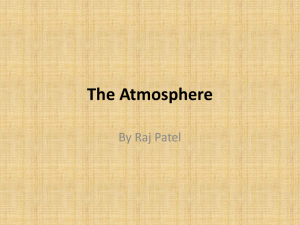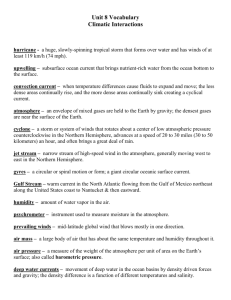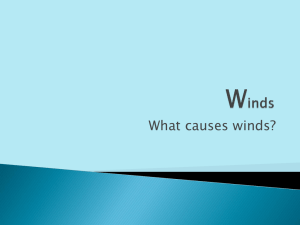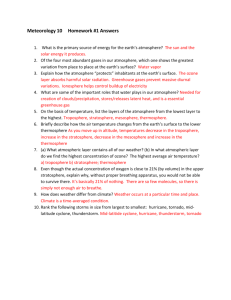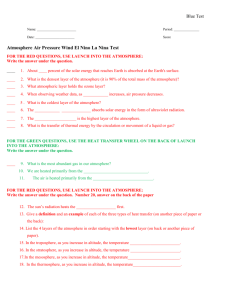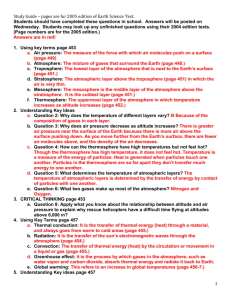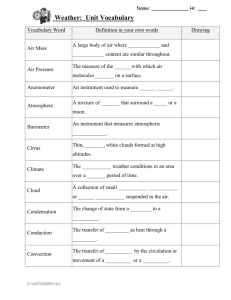Atmosphere Study Guide: Vocabulary, Layers, and Winds
advertisement
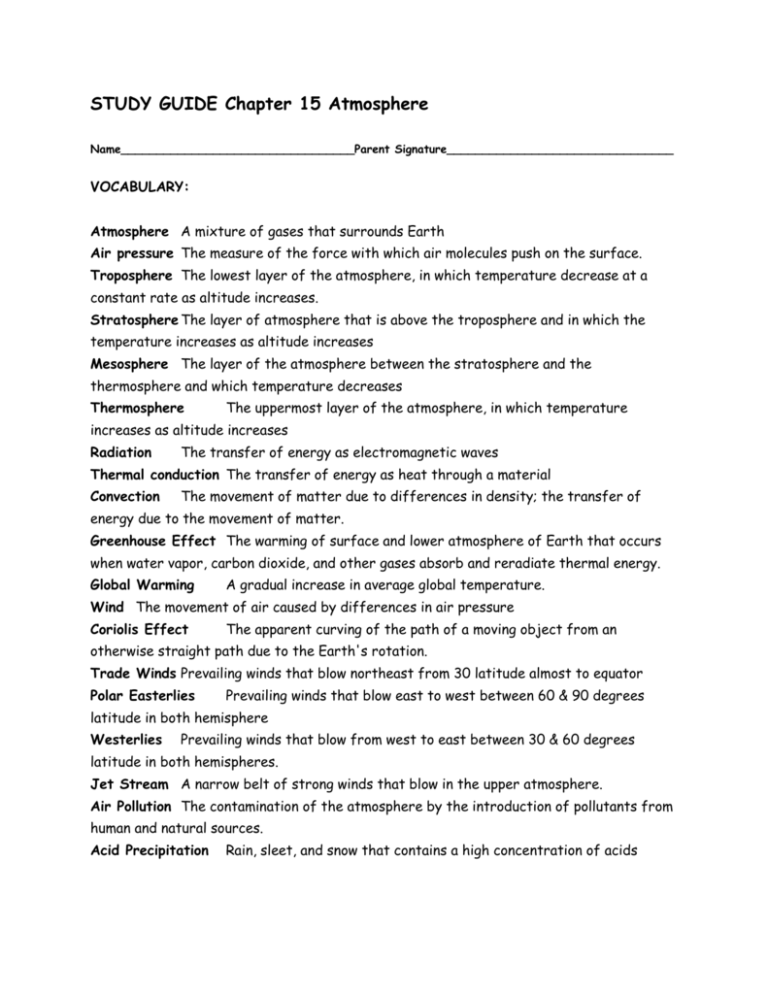
STUDY GUIDE Chapter 15 Atmosphere Name_________________________________Parent Signature________________________________ VOCABULARY: Atmosphere A mixture of gases that surrounds Earth Air pressure The measure of the force with which air molecules push on the surface. Troposphere The lowest layer of the atmosphere, in which temperature decrease at a constant rate as altitude increases. Stratosphere The layer of atmosphere that is above the troposphere and in which the temperature increases as altitude increases Mesosphere The layer of the atmosphere between the stratosphere and the thermosphere and which temperature decreases Thermosphere The uppermost layer of the atmosphere, in which temperature increases as altitude increases Radiation The transfer of energy as electromagnetic waves Thermal conduction The transfer of energy as heat through a material Convection The movement of matter due to differences in density; the transfer of energy due to the movement of matter. Greenhouse Effect The warming of surface and lower atmosphere of Earth that occurs when water vapor, carbon dioxide, and other gases absorb and reradiate thermal energy. Global Warming A gradual increase in average global temperature. Wind The movement of air caused by differences in air pressure Coriolis Effect The apparent curving of the path of a moving object from an otherwise straight path due to the Earth's rotation. Trade Winds Prevailing winds that blow northeast from 30 latitude almost to equator Polar Easterlies Prevailing winds that blow east to west between 60 & 90 degrees latitude in both hemisphere Westerlies Prevailing winds that blow from west to east between 30 & 60 degrees latitude in both hemispheres. Jet Stream A narrow belt of strong winds that blow in the upper atmosphere. Air Pollution The contamination of the atmosphere by the introduction of pollutants from human and natural sources. Acid Precipitation Rain, sleet, and snow that contains a high concentration of acids NOTES: Air Pressure decrease as altitude (height) increases We live in the Troposphere. Stratosphere contains the Ozone Layer (protects us from harmful UV rays from the sun) Mesosphere is the coldest layer Thermosphere is the uppermost layer Energy from the sun is transferred through the atmosphere by radiation, thermal conduction, and convection Winds blow from areas of high pressure to low pressure. Pressure belts are found approximately every 30° of latitude Global Winds include polar easterlies, westerlies, and trade winds Local Winds include sea and land breezes and mountain and valley breeze
